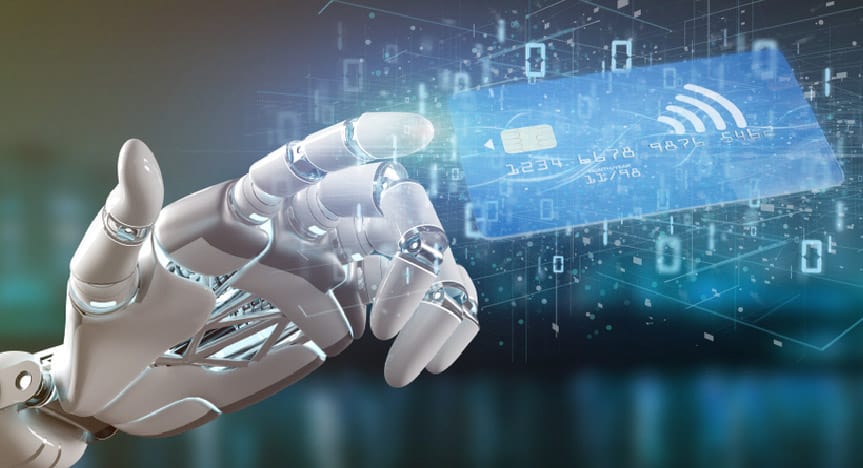Fraud is an all-too-common problem, and it’s one that businesses are struggling to fight on their own. One way that businesses are trying to combat this is by using artificial intelligence technology. This technology can help detect patterns in data that would otherwise be missed by humans. In this blog post, we will discuss the use of AI technology in fraud detection and how you can use it to safeguard your business from fraudsters.
What is Artificial Intelligence?

- Source: forbes.com
Artificial Intelligence is a computer science field that studies the ability of computers to perform tasks that would normally require human intelligence. AI research focuses on creating machines that can reason, learn, and make decisions. Some of the earliest AI research dealt with questionnaires and decision trees. More recent AI applications include machine translation, handwriting recognition, natural language processing, and computer vision.
There is no single definition of artificial intelligence, but the general idea is that computers can be made to imitate natural behaviors, such as understanding human speech and recognizing objects. This area of AI is known as “machine learning” and is used in a wide range of applications, from spam filtering to facial recognition. Artificial intelligence technology is being used increasingly in fraud detection. It can be used to identify patterns in data that might indicate this activity. It can also help identify whether any specific transaction or set of transactions is suspicious.
One way of fraud detection using AI is by analyzing large sets of data. For example, this data might be analyzed to see if a certain type of purchase is more likely to be made by someone who is trying to commit fraud.
Another way is by using machine learning algorithms. These algorithms are able to learn and recognize patterns in data without needing prior training. This helps the algorithm become better at identifying fraudulent activity in the future.
Artificial Intelligence Uses
There are many ways that artificial intelligence can be used in business and everyday life. Some of the most common uses include:
- Machine learning – This is a process where computers learn how to do tasks on their own by being trained on large data sets. It is used in areas like search engine optimization (SEO) and predictive analytics.
- Natural language processing (NLP) – This is a technique that helps computers understand and respond to human speech. It is used in areas like customer service and chatbots.
- Predictive analytics – This is a tool that helps businesses make predictions about future events or trends. It can help you identify risk factors, assess potential sales leads, and more.
- Computer vision – This is a technology that allows machines to see and understand images. It is used in areas like autonomous vehicles and facial recognition software.
- Robotics – This is a type of artificial intelligence that allows machines to be controlled using software or hardware. It is used in areas like manufacturing and logistics.
What are Its Uses in Fraud Detection?

- Source: shuftipro.com
Artificial intelligence technology is being used increasingly in fraud detection. It can help identify patterns of behavior that may be indicative of fraud, and it can flag potential cases for further investigation.
One common use of artificial intelligence technology is to identify “suspicious transactions” – those that appear to be out of the ordinary, either in terms of their size or the person or company involved. Suspicious transactions are often a sign that someone may be trying to commit fraud.
AI technology can also help identify patterns of behavior that could indicate fraudulent activity on the part of a company or individual. For example, AI technology can track spending habits over time and detect unusual increases or decreases in spending. This information can help investigators determine whether a business is engaging in fraudulent practices and whether any specific individuals or organizations are responsible for them. For example, AI can analyze digital records to determine whether a person has made repeated purchases of the same item over a period of time. AI can also analyze social media posts and other online data to identify suspicious behavior.
AI technology can be helpful in detecting many types of fraud, including financial fraud, identity theft, and cybercrime. By using AI technology, businesses can reduce the time and resources necessary to investigate potential fraudulent activities.
What are the Tasks of AI Technology in Detecting Fraud
The tasks of AI technology in detecting fraud can include the following:
- Recognizing patterns and anomalies in data to identify possible fraud.
- Automating processes to help detect such activity more quickly and automatically.
- Studying past fraud cases and learning from them to improve detection capabilities in the future.
- Developing algorithms to identify fake online identities and websites.
- Generating reports that detail the findings of fraud investigations.
- Sharing data and knowledge with other entities to help them improve their fraud detection capabilities.
- Coordinating with other departments within a company to ensure that fraud is detected and stopped as quickly as possible.
All of these tasks can be used to help improve the overall fraud detection process. By using AI technology, organizations can save time and money while also ensuring that their systems are more effective at identifying fraudulent activities.

- Source: formica.ai
Wrapping Up
Fraud detection has long been an essential part of financial security. However, as the world becomes increasingly digitized and complex, traditional methods of fraud detection — such as human inspection and analysis of documents or data — become less effective. Artificial intelligence (AI) technology is becoming an increasingly important tool in fraud prevention and detection. AI can be used to identify patterns in large datasets that are not visible to humans. Additionally, AI can help automate the process of detecting and investigating possible frauds by automating tasks that would traditionally require a human analyst’s time and effort.
As the landscape of financial security evolves, embracing artificial intelligence course fees becomes essential to enhance fraud detection through innovative methods. If you are looking to upskill yourself, check your artificial intelligence course eligibility.



